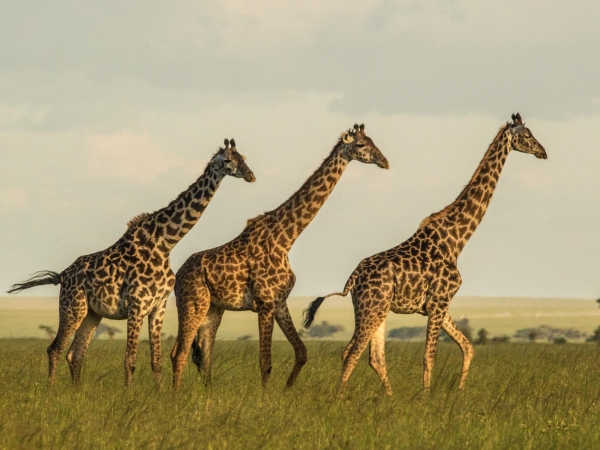Giraffes in eastern Africa may be even more endangered than previously thought. A new study led by researchers at Penn State revealed that populations of Masai giraffes separated geographically by the Great Rift Valley have not interbred — or exchanged genetic material — in more than a thousand years, and in some cases hundreds of thousands of years. The researchers recommend that the two populations be considered separately for conservation purposes, with separate but coordinated conservation efforts to manage each population.
Populations of giraffes have declined rapidly in the last 30 years, with fewer than 100,000 individuals remaining worldwide. Numbers of Masai giraffes, a species found in Tanzania and southern Kenya that are considered endangered by the International Union for Conservation of Nature (IUCN) have declined by about 50% in this period due to illegal hunting and other human activities that encroach on their habitat, with only about 35,000 individuals remaining.
“The habitat of Masai giraffes is highly fragmented, in part due to the rapid expansion of the human population in east Africa in the last 30 years and the consequent loss of wildlife habitats,” said Douglas Cavener, Dorothy Foehr Huck and J. Lloyd Huck Distinguished Chair in Evolutionary Genetics and professor of biology at Penn State and leader of the research team. “Additionally, the Great Rift Valley cuts down through East Africa, and the steep slopes of its escarpments are formidable barriers to wildlife migration. We looked at the genomes of 100 Masai giraffes to determine if populations on either side of the rift have crossed over to breed with each other in the recent past, which has important implications for conservation.”
Read more at: Penn State
A new study led by researchers at Penn State reveals that populations of Masai giraffes separated geographically by the Great Rift Valley have not exchanged genetic material in more than a thousand years, and in some cases hundreds of thousands of years, suggesting these giraffes are more endangered than previously thought. (Photo Credit: Sonja Metzger)


